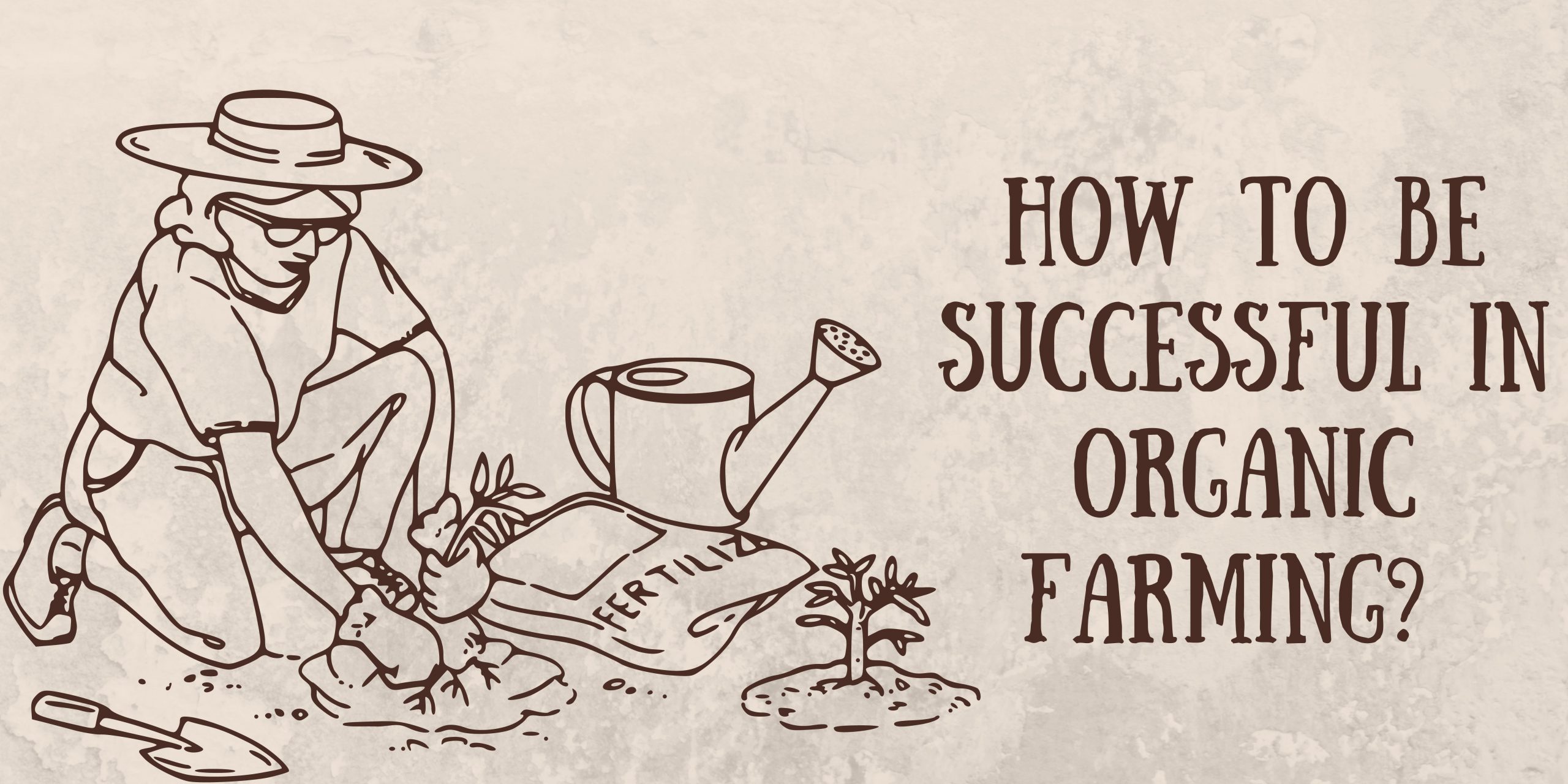
How to be Successful in Organic Farming?
Successful organic farming
Successful organic farming requires the use of biotic elements to sustain the indigenous vigour of soil and the dodging of synthetic compounds. Consequently, organic farming reduces contamination, preserves soil fecundity, maintains environmental equilibrium, and conserves eco-diversity. Chemical insecticides and artificial manure are not used in organic farming. To put it another way, organic farming is the securest type of farming available, as it protects human well-being, the ecology, and the environment. Crop variations, soil administration and weed control, are all part of organic farming. India is an agricultural country and has been practising organic farming for an extended period. Everything changed with the passage of time and industrialisation. At present, people are returning to the previous route of organic farming, initiating with the fundamentals and progressing to everything that one needs to know about organic farming. Transitioning from modern to organic farming necessitates several adjustments. One of the most significant shifts is in the farmer’s thinking.
Hasty solutions are frequently used in traditional procedures, which, regrettably, hardly ever tackle the root of the issue. Instead of addressing management approaches built on pre-emptive tactics, transitioning agriculturalists devote excessive time agonising over substituting artificial input with permitted organic products. Neophytes and evolutionary agriculturists must get acquainted with reasonable and justifiable agriculture methodologies because successful organic farming structures are experimental and knowledge-based. Transitionary farmers should go through relevant materials, carry out their tasks, and attend official and casual training sessions. As previously stated, transitioning from modern to organic farming entails more than simply replacing synthetic resources with organically permitted materials. Organic farming is an all-inclusive approach based on all-encompassing practices and pre-emptive measures. Because organic producers generally have limited access to organic solutions for specific issues, prevention is essential in organic farming. Many successful Organic farmers recognise their assets- Before they begin organic farming, they must initially find their strengths and resources that will assist them.
Organic Agriculturists must learn from current organic agriculturists and guides. They should study their farmland nature and the befitting crops for it. They should improve the quality and get the maximum nutrition of the crops. They can stimulate biological approaches with organic substances in order to maintain soil excellence. They may give harvest supplements in a roundabout way by utilising manure and thus microorganisms in the soil in succession. Scheduling proper crop rotations is a crucial element in successful organic farming management. Crop selection should be based on climatical and soil particulars, as this influences soil fecundity. Organic farmers should practise proactive weed managing techniques. They should examine pests and management methods- Pests are one of the most challenging aspects of organic gardening. They must choose suitable organic pest management strategies based on the crops cultivated; good ploughing at the beginning and the usage of manures and mulching can help prevent pest growth.
There is always the greatest of the best, even with wonderful things. It’s the same with organic farming. Organic farming approaches have long been shown to aid in promoting and restoring soil health, the replenishment of organic carbon in the soil, and the preservation of subsurface biodiversity. And certain organic solutions yield a greater return on investment in terms of soil vigour than the rest. Organic farmers should prepare for innovative possibilities- Giving novel challenges an opportunity is a good concept. They can also attempt fresh ways after some exploration and careful scheduling. Successful organic farming can provide yields comparable to conventional agriculture, with healthier plants and fewer insect and weed issues. However, it would help if you initially acquired the principles of organic farming. Uyir organic farmers market aids organic farmers in all possible ways and provides the best organic products to the consumers.